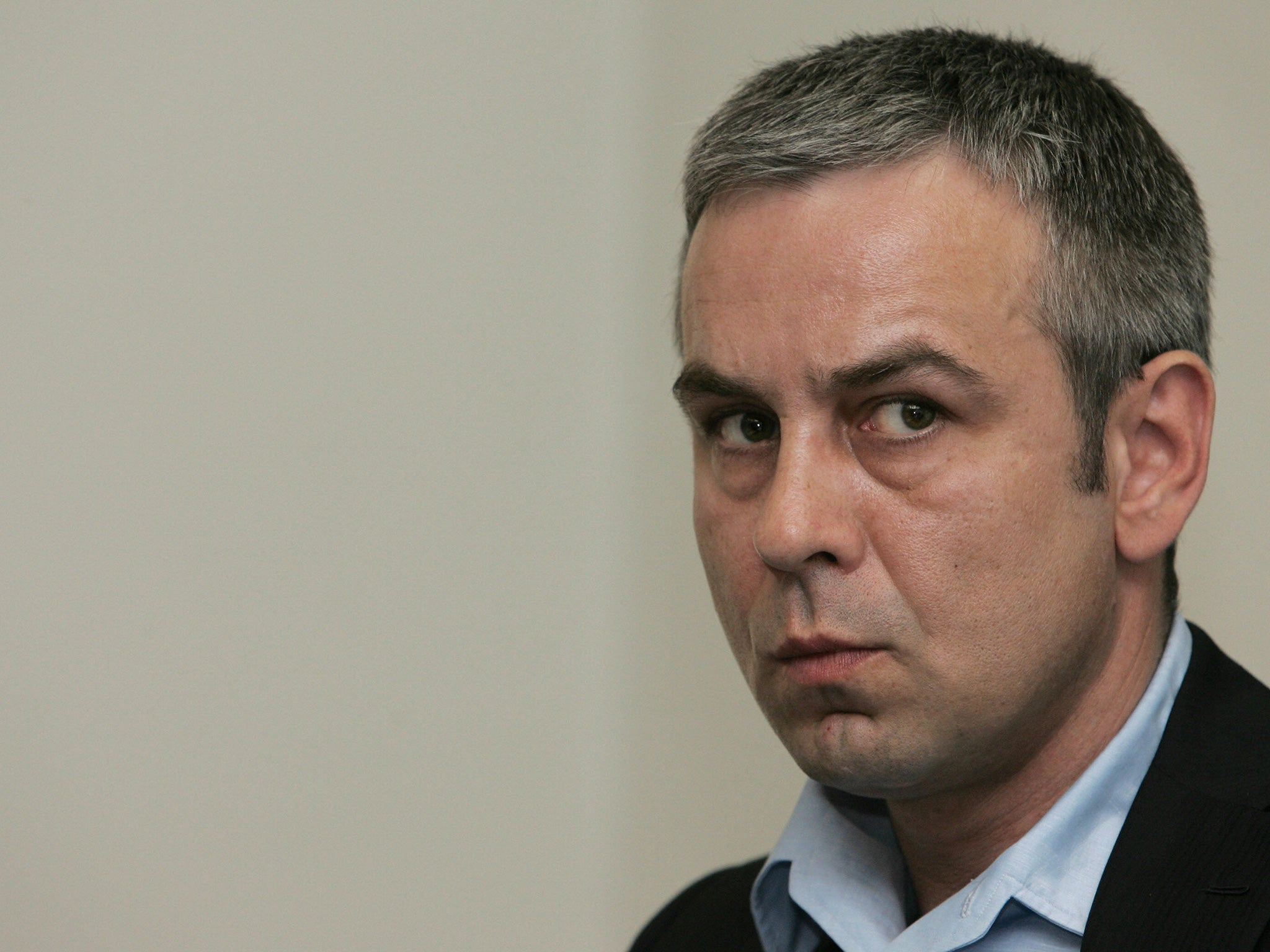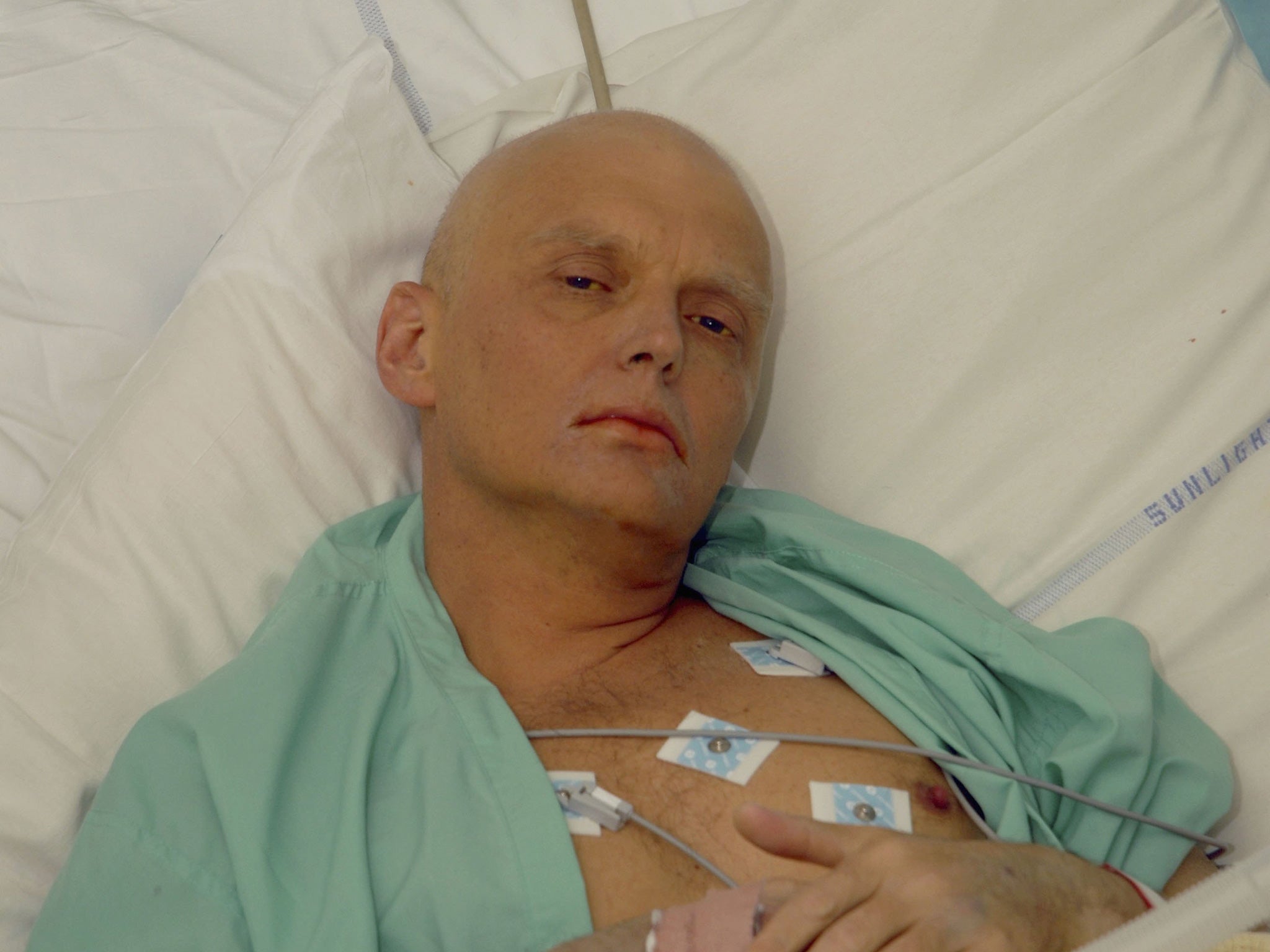Alexander Litvinenko murder inquiry: Suspect’s evidence could radically change the final outcome
Dmitri Kovtun’s 11th-hour request to testify could drastically change the inquiry's results

After eight years of delay and eight weeks of brisk court hearings, the public part of the inquiry into the radiation death of the Russian spy Alexander Litvinenko was on track to hear closing statements before Easter. Now, the whole process has fallen into disarray with the disclosure that one of the two men wanted by Scotland Yard for murder has asked to take part.
The bombshell came at what had been billed a routine procedural hearing on Thursday afternoon. The counsel for the inquiry, Robin Tam QC, disclosed that Dmitri Kovtun had been in contact with inquiry officials over the previous two weeks and asked to become a “core participant”.
“Core participants” are those regarded as having a direct interest in the case; they are entitled to legal representation and to testify. So far, they are Litvinenko’s widow, Marina, the Metropolitan Police, the Home Office, and the UK Atomic Weapons Establishment at Aldermaston. Mr Kovtun and his fellow suspect, Andrey Lugovoy, were offered core participant status but declined it, as did the Russian government.
Mr Kovtun’s application has two main consequences. The first is that the inquiry has been adjourned for a week to consider the request; whatever is decided, there is little chance now that the open hearings can be wrapped up before Easter. All the efforts of the chairman, Sir Robert Owen, to keep to schedule and overturn the reputation of such inquiries for extravagance in time and money look set to be frustrated.

Long term the effect could be to change the course, character, and possibly the outcome, of the proceedings. It seems unlikely Mr Kovtun’s application will be refused. In opening statements Sir Robert, as well as counsel for the inquiry, virtually pleaded with the two accused to take part. They made clear that arrangements could be made, even at that late stage, for them to be represented and to testify from Moscow. Russia has cited constitutional constraints as the reason for refusing extradition.
It can only be speculated why Mr Kovtun has changed his mind. His 11th-hour move could be seen as a deliberate KGB-type ploy, designed to sow chaos and confusion. But there could be quite a different explanation. Ever since the Met named Mr Kovtun and Mr Lugovoy as the chief suspects, the running in terms of publicity and denials has been made by Andrey Lugovoy.
Early on, he gave press conferences and interviews in Moscow; it was he who took a lie-detector test (much ridiculed during the inquiry) for a Russian TV documentary. And it is he who was allocated a safe seat in the Russian parliament, which carries with it immunity from prosecution. Mr Lugovoy has also received two honours from President Putin, the latest only two weeks ago.
Could Mr Kovtun perhaps have become angered by the disparity between Mr Lugovoy’s treatment by the authorities and his own? The Litvinenko Inquiry has heard that both men were treated in a Russian hospital for radiation exposure, but the reports also suggested that Mr Kovtun was the worse affected, suffering hair loss and burns. His family circumstances also appear to be less stable. Might he have less to lose by spilling some (or all of the) beans?
If the motives for Mr Kovtun’s change of heart are so far unknowable, what has emerged from the inquiry so far suggests he has a story to tell. He took last-minute flights and stayed in hotel rooms all booked by other people and paid for with other people’s money. Unlike Mr Lugovoy, he left no credit card or mobile phone trail. And he seldom appears on CCTV footage, though he does show up on the way to the toilet, on the afternoon Litvinenko drank the possibly fatal tea at the Millennium Hotel in Mayfair. He also left contradictory, if any, impressions with those he met – the perfect cover for an assassin.
The inquiry was told that Mr Kovtun had contacted a former workmate at a Hamburg restaurant and asked him whether he knew anyone in food or drink establishments in London who might administer a “very expensive poison”. That testimony has yet to be heard (there appear to be difficulties agreeing terms with the German authorities). But an Albanian émigré in London has testified that he had worked in Hamburg with Mr Kovtun, who contacted him out of the blue shortly before Litvinenko fell ill. The inquiry was not told about the outcome of that conversation or any meeting; such information, it may be surmised, was deemed too sensitive for the open hearings.
Whether or not he testifies, the prospect of Mr Kovtun being represented at the inquiry could change its character. So far little cross-examination has taken place. Witnesses whose evidence supports the thesis that the two suspects, and ultimately Putin, “did it” have been heard generally at length and without challenge. The few who have questioned that consensus have found themselves savaged, with attempts made to discredit them personally. If Mr Kovtun is represented, that can only enhance the credibility of an inquiry that was becoming more one-sided by the week.
Bookmark popover
Removed from bookmarks